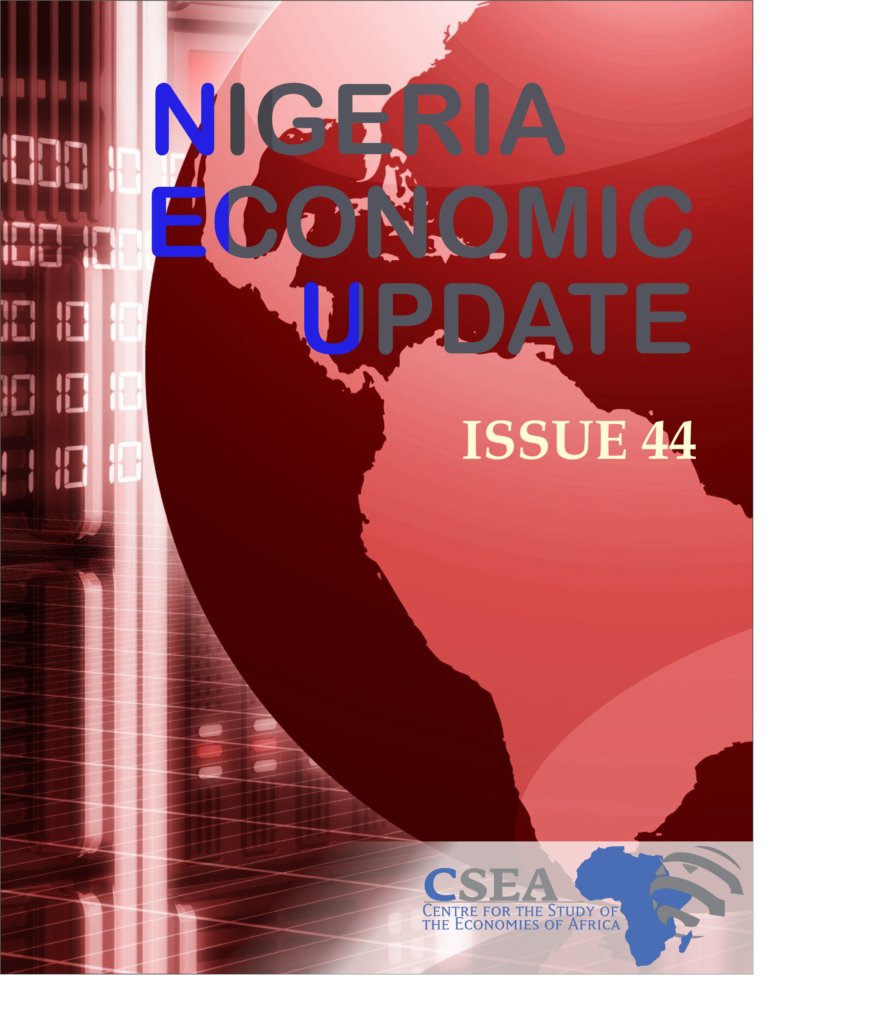At N4,401.91 billion or 7.7 per cent of GDP, gross federally collected revenue for the first half of 2018 was 33.7 percent below the proportionate budget estimates but 47.1 percent above the level recorded in corresponding period of 2017.1 The difference in revenue, relative to the proportionate budget estimates, was driven by shortfalls in both oil and non-oil revenue components. The decline in oil revenue was due to a difference between the budgeted crude oil production benchmark of 2.3 million barrels per day (mbd) and the actual production of 1.90 mbd. An increase in crude oil price over the budget benchmark within the review period was insufficient to reverse the decreasing trend in oil revenue.
Macroeconomic Report & Economic Updates

November 14, 2018
Nigeria Economic Update (Issue 44)
At N4,401.91 billion or 7.7 per cent of GDP, gross federally collected revenue for the first half of 2018 was 33.7 percent below the proportionate budget estimates but 47.1 percent above the level recorded in corresponding period of 2017.1 The difference in revenue, relative to the proportionate budget estimates, was driven by shortfalls in both […]
Read →
Related
Regional Integration In Africa: Some Recent Developments And Challenges
African countries have been left out of the recent benefits accruing from international trade. For example, they accounted for only 3.2 percent of world trade in 2013 compared to 5 percent in the mid-1960s. Regional integration can reverse this weak performance as it holds the promise for countries to gain from the resultant economies of scale and enhanced competitiveness. It will also help to expand the markets for foreign direct investment.
Nigeria Economic Update (Issue 51)
According to figures released by the Nigeria Bureau of Statistics, employment growth lagged during the recession period, and worsened unemployment/underemployment rates few quarters after. Specifically, unemployment rate rose to 18.8 percent in 2017Q31, up from 16.2 percent in previous quarter (the recession-exit quarter) and 13.9 percent in corresponding quarter. Disaggregated figures reveal that the number of unemployed and underemployed persons in the labour force increased by 17 percent and 2 percent respectively, to 15.9 million and 18.0 million in 2017Q3, majority of which are young persons within ages 15-34.
